The Okavango Delta
Here’s some fun facts about Botswana. They have about 150,000 elephants, the largest amount for any country in the world, they have the second highest rate of HIV/AIDS in the world (22% of all adults are infected), a third of their government revenue is based on their huge diamond industry, of which they are heavily dependent, they have had the fastest economic growth rate of any country in the world from 1966 to 2015 and a higher GDP per person than most African countries, including South Africa. They are a huge success story in many ways and have two of the most intriguing natural phenomena in Africa – the Okavango Delta and the Kalahari Desert.
We’ve loved our time in Botswana so far. Chobe National Park was spectacular, perhaps our favourite of all parks so far, rivalling Kruger National Park in South Africa. But Botswana doesn’t have a clean slate – their government has made a conscious decision to gouge its visitors by charging outrageous fees for their parks and camping, which is definitely restricting the time we (and other visitors we talk to) spend here. And unlike other countries we’ve visited recently, the people of Botswana aren’t universally friendly, helpful or responsive to our questions. The word that keeps coming to our mind is indifference. It’s a subtle difference to what we’ve seen in other countries.
The Okavango Delta is one of the most extraordinary acts of nature in the world. Every year the rainy season in Angola, which is north of Botswana, fills the huge Okavango River with zillions of litres of water. This water rushes south into Botswana but has no natural outlet to the sea, instead it just spreads out across this vast flatland basin forming an inland delta, bringing life to countless bird, fish and wildlife species. There is no other place like it.
Except…this year the rains did not come in Angola and therefore the Okavango Delta has not filled with its precious water, leaving the animals and people that depend on it in strife. Nevertheless, we drove from the regional hub of Maun north into the delta, keen to see what there was on offer. As it turned out, dry waterholes, scarce animals, a dry, brown and largely lifeless terrain.
We spent the day driving around and through the park, mainly looking for lions, negotiating the uber narrow tracks that left many Botswana racing stripes on the sides of Tramp, when only a kilometre from camp we finally found two beautiful male lions who had gorged themselves on a kill and were looking for a drink. These are magnificent beasts, the kings of the jungle, huge animals that send the rest of the animal kingdom scampering for cover. We loved it.
That night we camped at a place called Third Bridge, another $100 campsite, on the edge of a small waterway. The next morning we hired a motorised boat to take us up the waterway and see the delta from another perspective. This was very cool, following a narrow channel through the reeds and grasses, past startled hippos, scattering colourful birds, learning from David our guide about how the locals use the dozens of grasses that grow in the Delta to build their houses, cook for food, turn into medicine. The boat trip opened our eyes to the power and importance of the water flowing into the delta and gave us a brief insight into the lives of the local people.
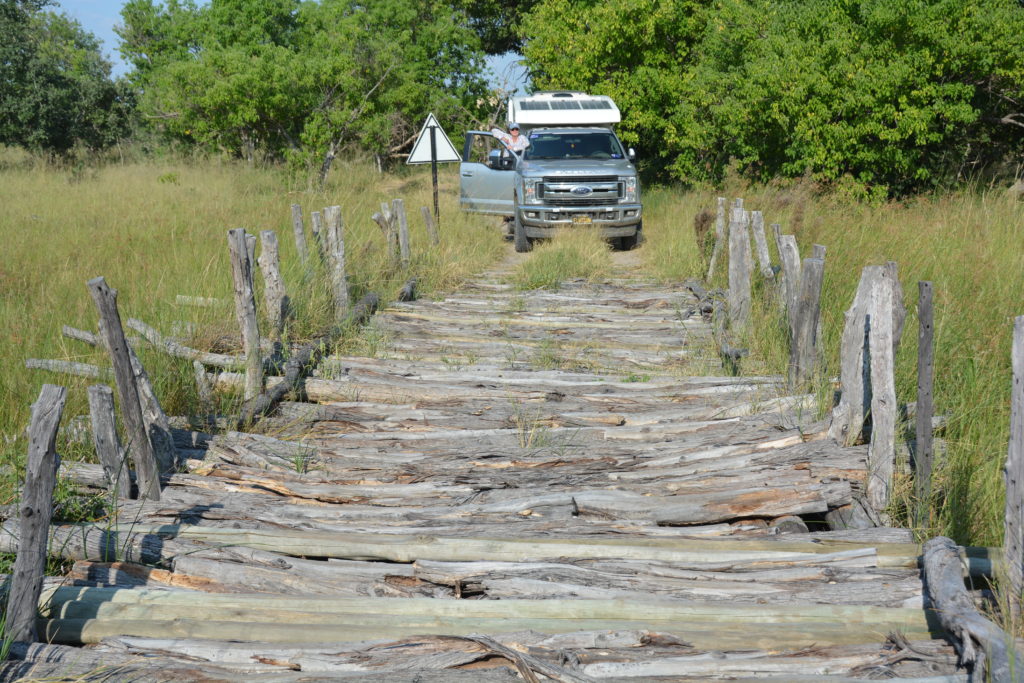
There are three bridges that cross waterways, allowing travellers to get around this section of the delta. This is the Third Bridge…you have to draw a breath and hope it holds Tramp’s four tonnes
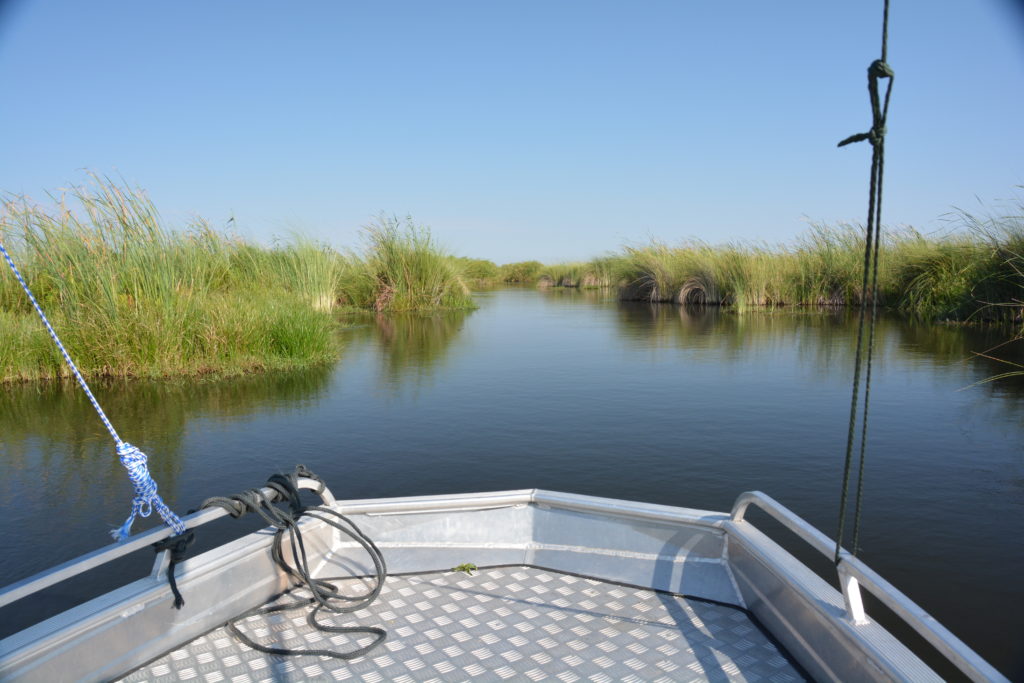
The water levels are very low this year but there is still some water in the delta and it was very cool to spend a morning in a little tinnie with a guide exploring the area
We took a circuitous route out of the camp across new roads, following a tip from one local we found a beautiful male lion resting in the shade of a tree. He was so relaxed we were able to drive in close and had this special moment all to ourselves. Lions get maximum WOW points.
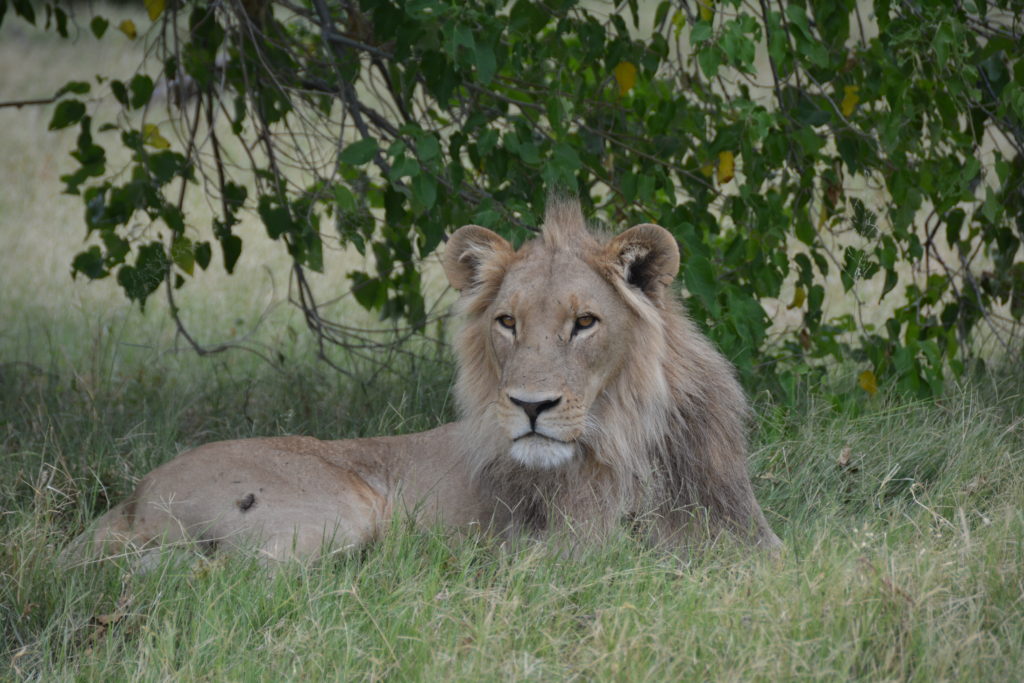
This magnificent beast was not worried one bit when we found him lounging in the shade – as long as we stayed inside Tramp
Then it was the long, hot, bumpy, sandy and slow trek out of the park and back to the regional town of Maun, a journey that took the entire afternoon. But we still had quite a few animal moments including the first sighting of the graceful Sable Antelope, a special treat.
After a full day of important administration issues in Maun, including the onerous task of booking future campsites, my haircut at the African Dreams Salon, a full catch up on laundry at the Fresh Exclusive Night Club which doubles as a laundry during the day, restocking supplies, banking, and an important oil and filter change for Tramp we travelled east towards the great Botswanian interior. Awaiting us was the vast Kalahari Desert and its famous salt pans where we planned to spend up to five days or until our fuel ran out.

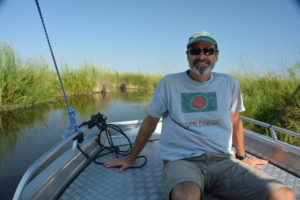
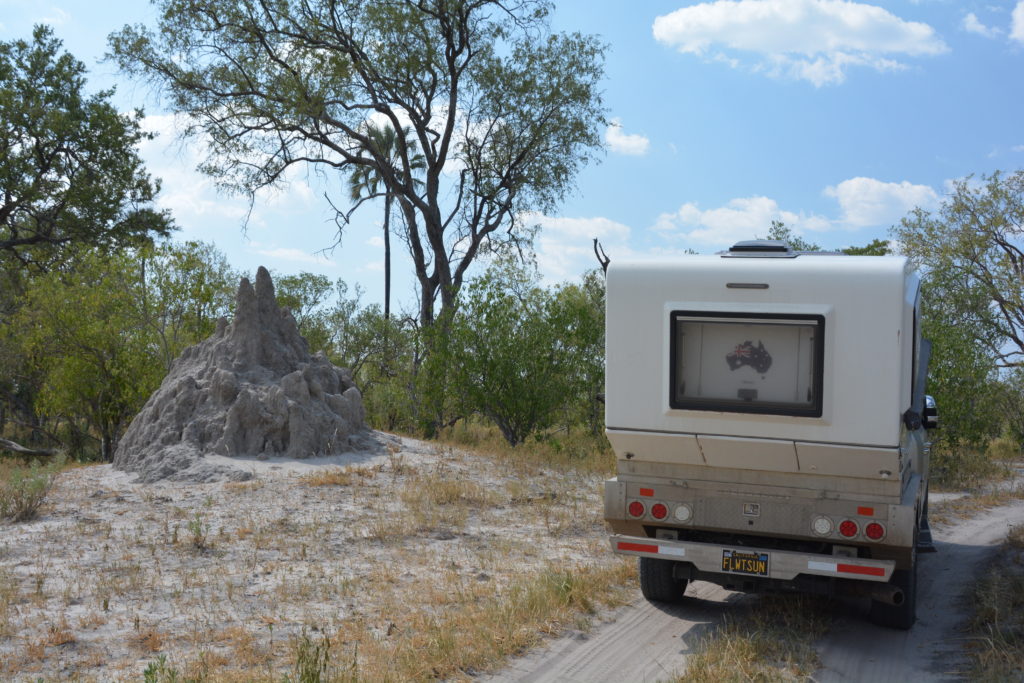
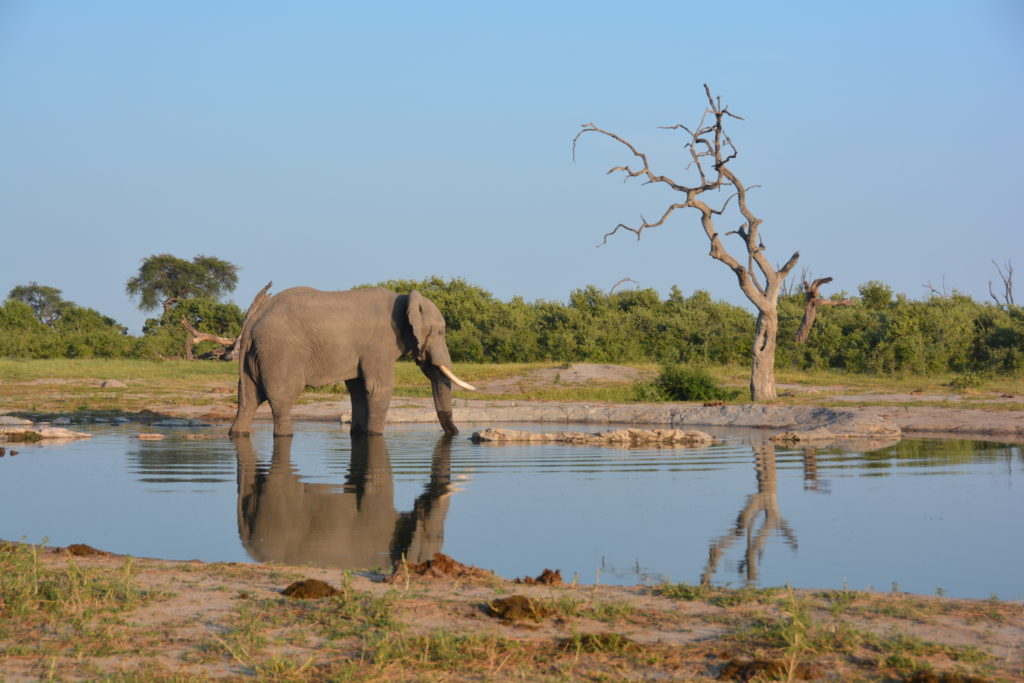
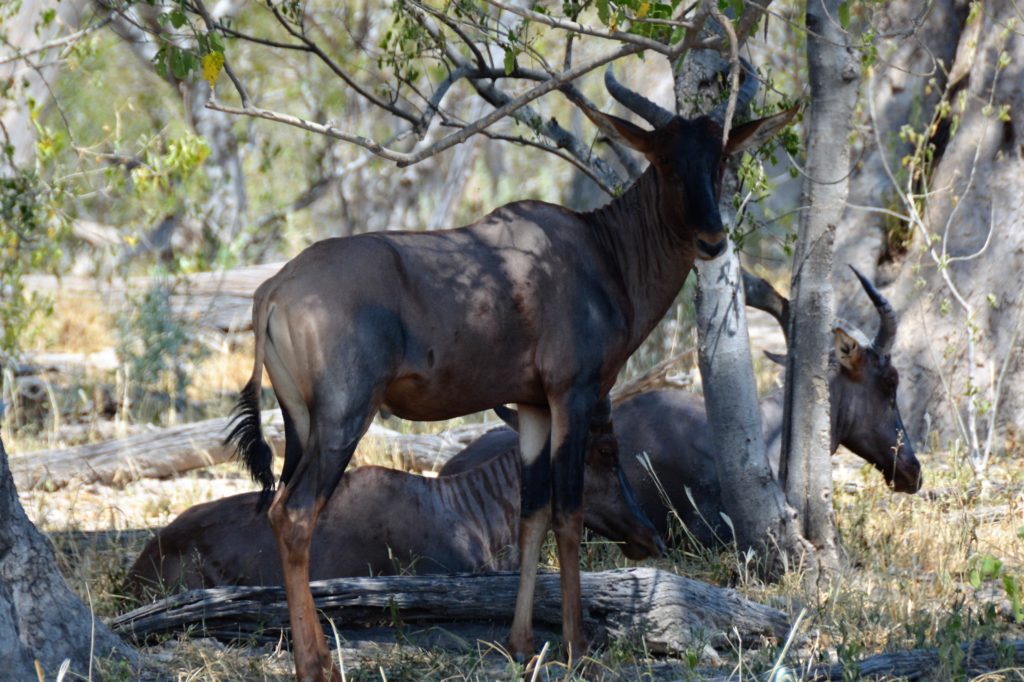
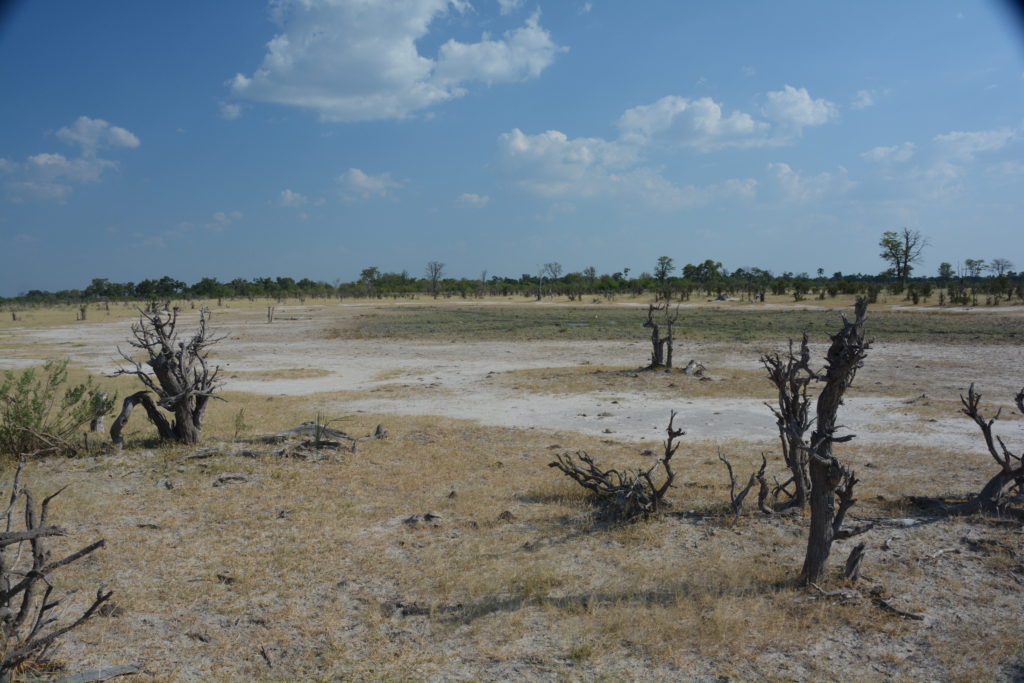
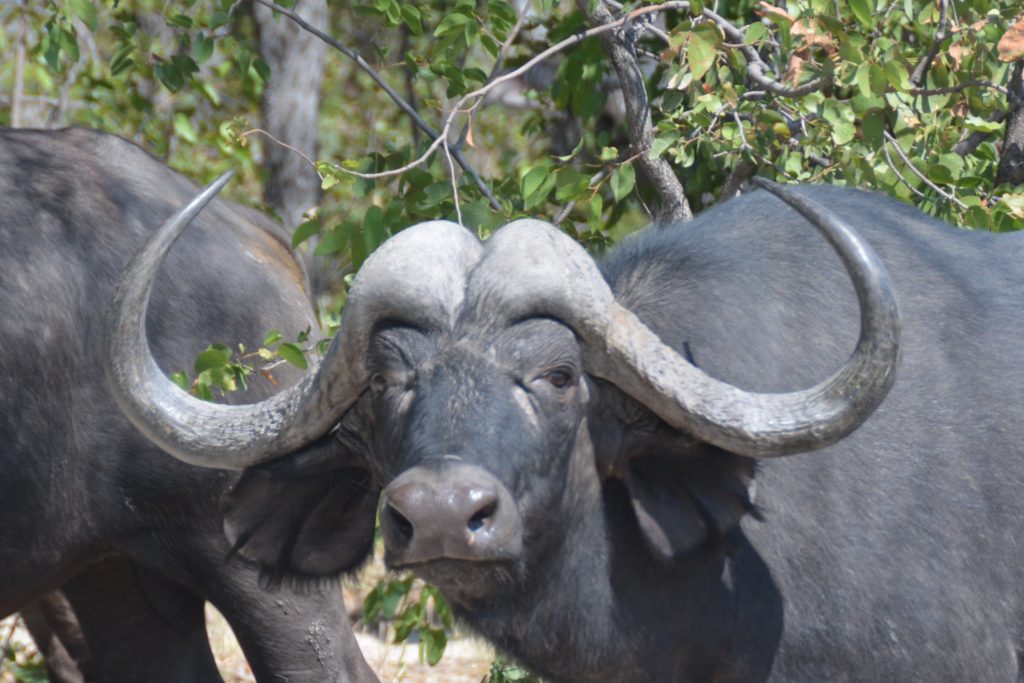
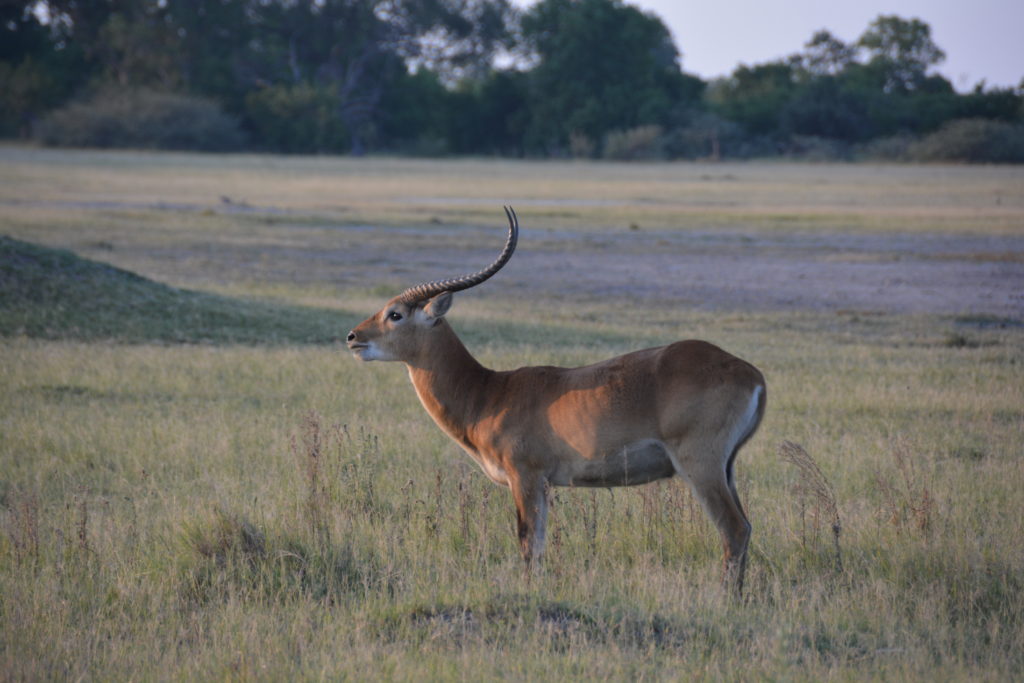
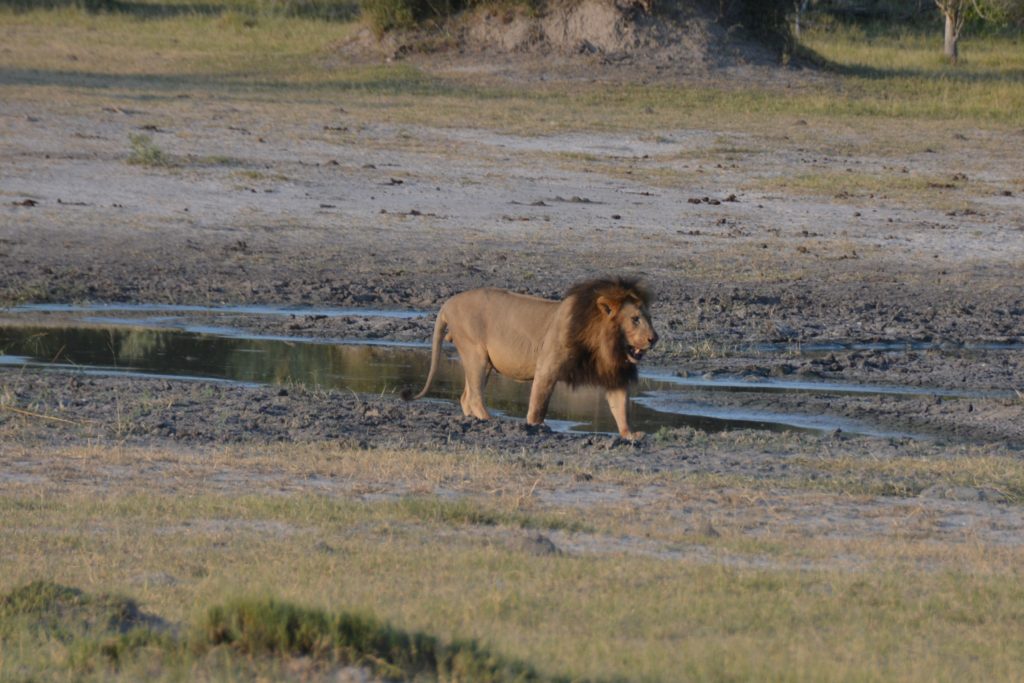
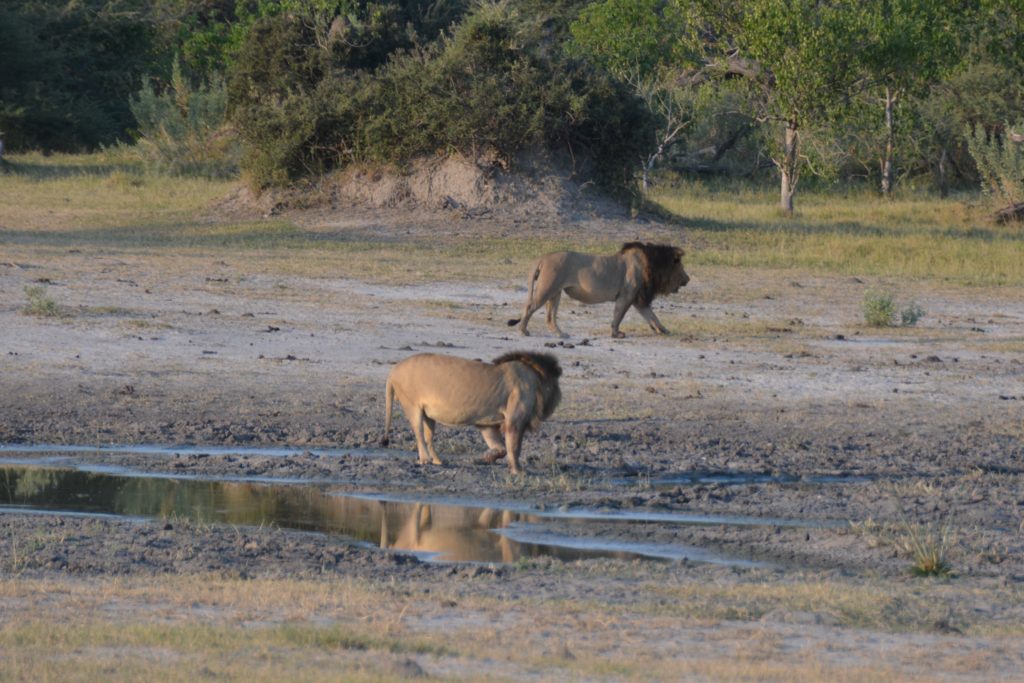
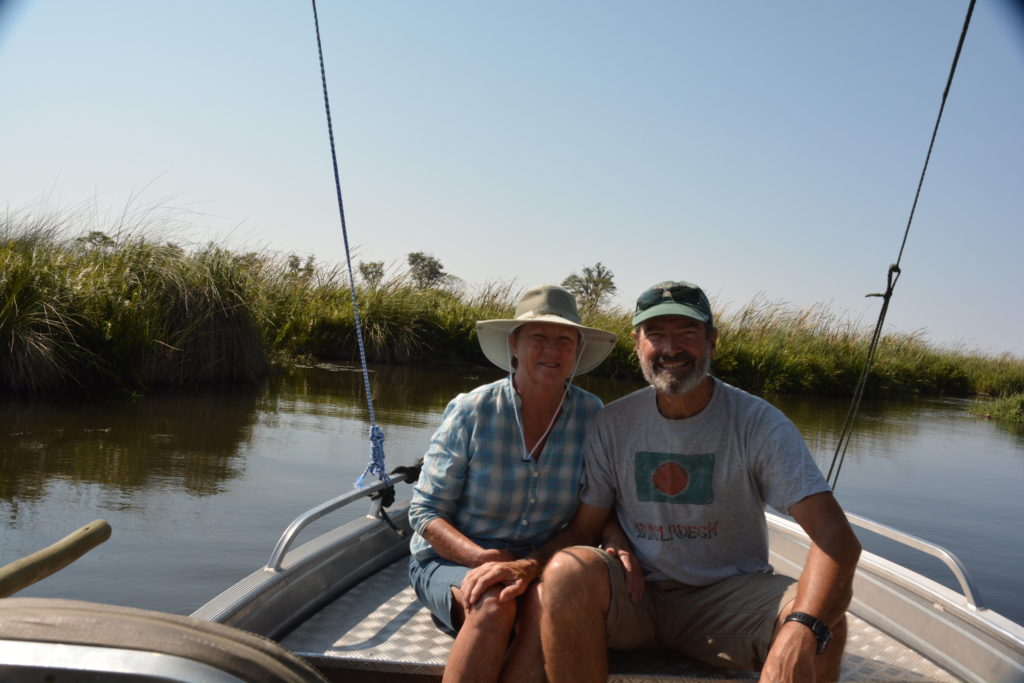
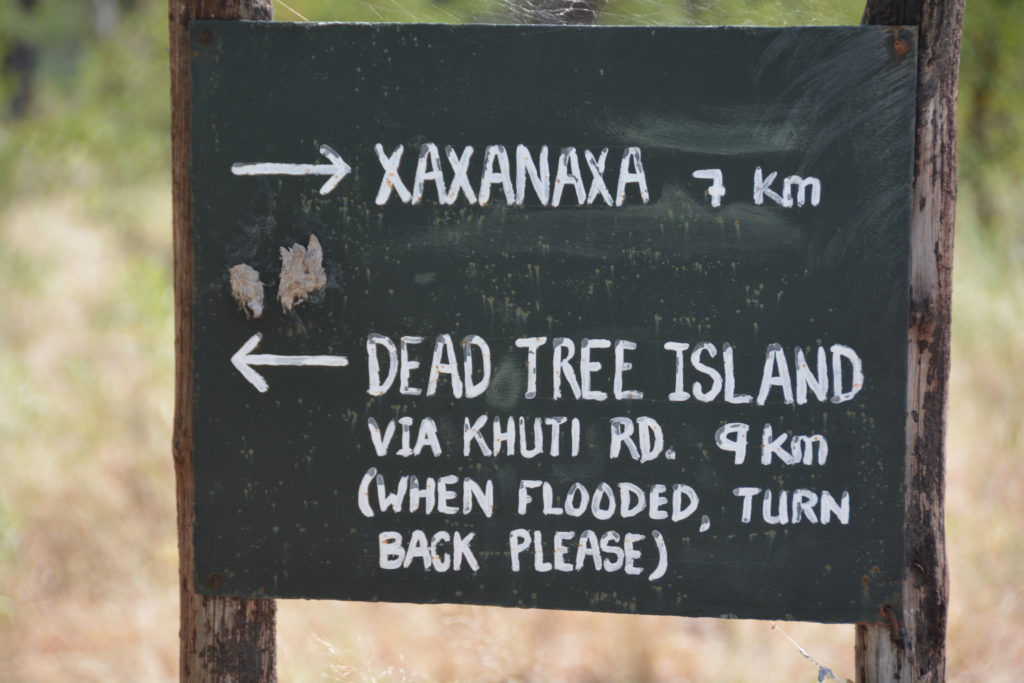
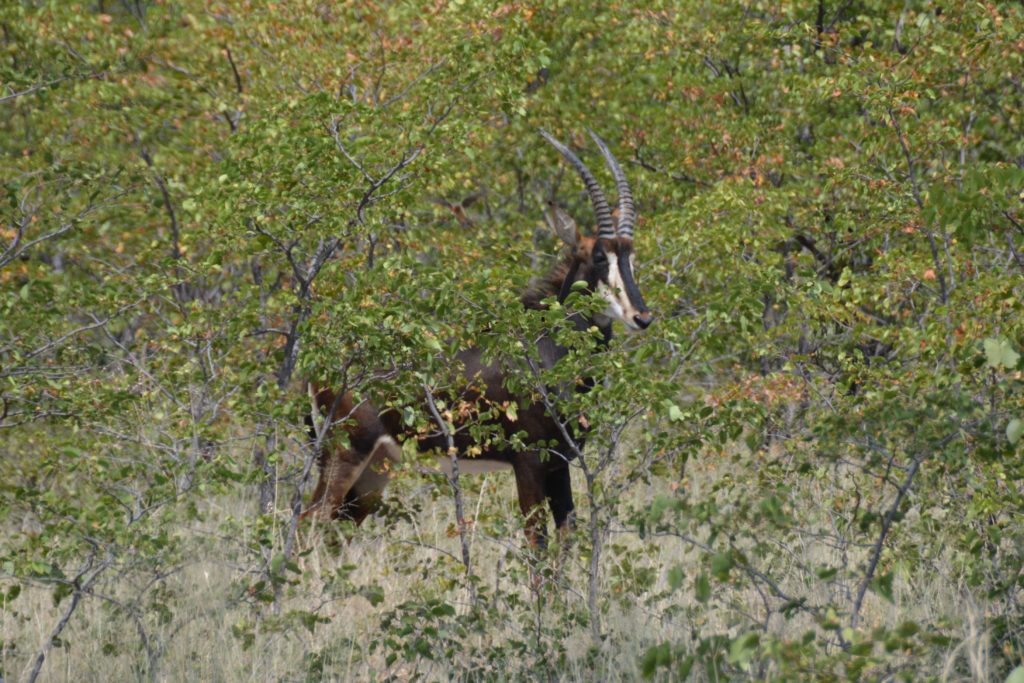
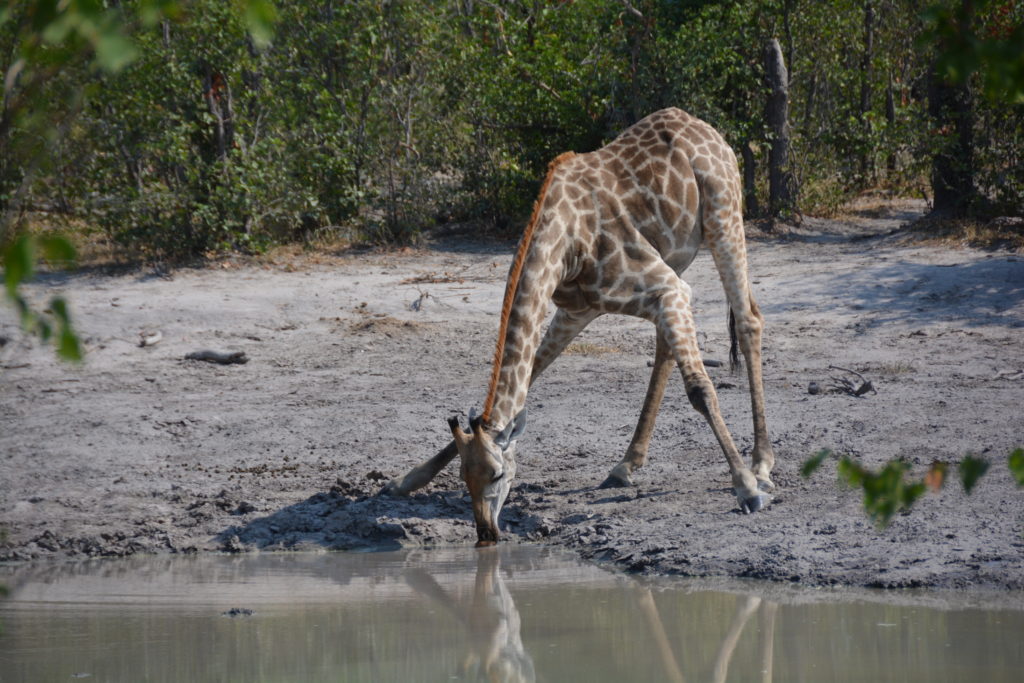
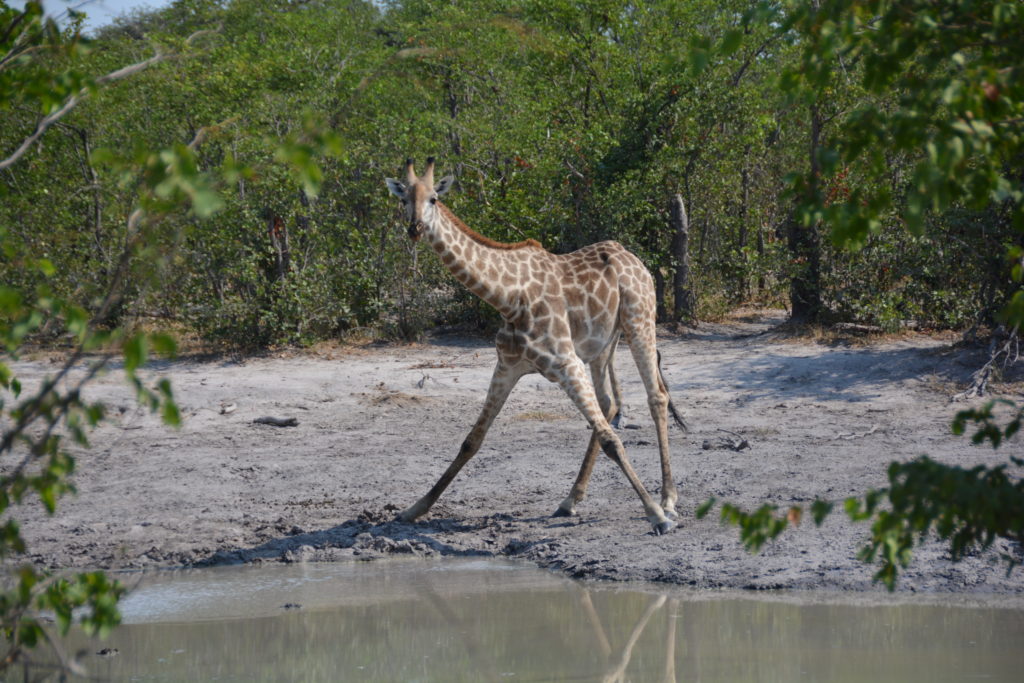
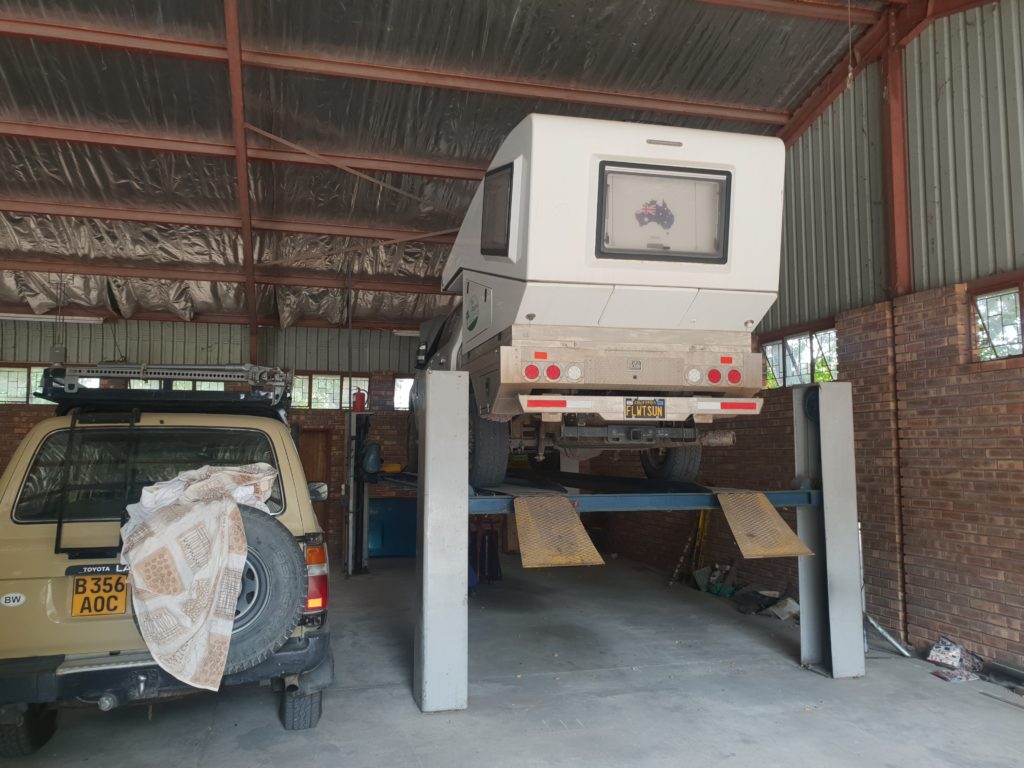
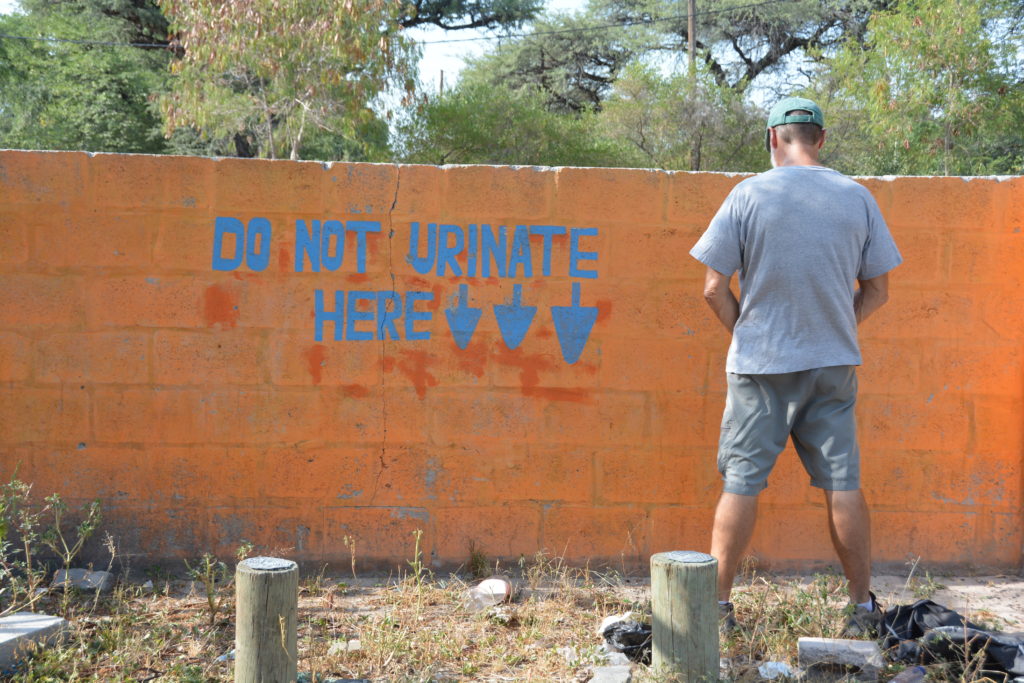
Absolutely loving all the wildlife how amazing to be so close
You will have the most amazing memories so lucky
Hi Louise, good to hear from you. Yes, unquestionably the animals have been the highlight of Africa, we just can’t get enough of them. Like no other place in the world! Cheers, Bill